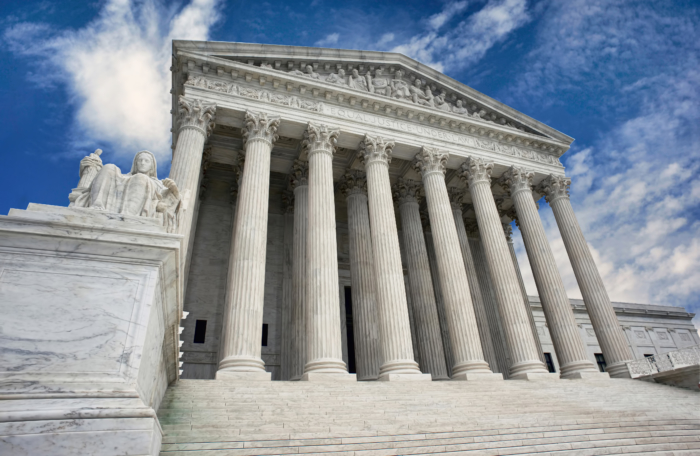Janus ruling reversed years-long growth in state employee union membership
Last year’s U.S. Supreme Court ruling in Janus v. AFCSME triggered a 5.9% reduction in New Hampshire state employee union membership, state payroll data obtained by the Josiah Bartlett Center for Public Policy show. The sudden drop reversed a years-long trend of rising union enrollment in state government.
Prior to the Janus decision, New Hampshire was one of 22 states plus the District of Columbia that forced non-union employees to pay union fees. Janus forbade states from collecting those fees.
New Hampshire halted this “agency fee” collection immediately after the ruling last June. In the following 12 months, state employee unions collectively lost 420 members, or 5.9% of their enrollment.
The vast majority of those losses (92.4%, or 388 members) came from the State Employees Association, according to state payroll figures.
Because the state withholds union dues from paychecks, union membership is trackable through payroll records. Those records show that in the previous five years, state employee unions had grown steadily, adding an average of 184 members a year.
Twelve months later, payroll records show that the Janus decision wiped out nearly half of those gains in just one year. The Josiah Bartlett Center obtained the data through right-to-know requests.
The inescapable conclusion is that hundreds of New Hampshire state employees had been joining labor unions only because they were being forced to hand over their money whether they joined or not.
Finally free to decide for themselves whether to support a union, they’ve chosen, along with more than 2,000 other state employees, to keep their money.
“Agency fees” and free speech
“Agency fees” were withheld from state employee paychecks and given directly to the unions on the theory that collective bargaining agreements benefitted all employees.
In Janus v. AFCSME, the Supreme Court held that state government “extraction of agency fees from nonconsenting (sic) public-sector employees violates the First Amendment.”
The court concluded that agency fee collection “violates the free speech rights of nonmembers by compelling them to subsidize private speech on matters of substantial public concern.”
As of the date of the Janus decision, 2,161 non-union N.H. state employees had been compelled to pay $1,012,055.83 in agency fees during the previous 12 months, payroll data the Josiah Bartlett Center obtained last year showed.
Instead of seeing those employees rush to join, unions lost withholdings from another 420 employees the next year. The figures show that agency-fee payers were not the only ones bankrolling unions reluctantly, in violation of their First Amendment rights. So were hundreds of union members.
The Janus drop
To see whether the decline in membership since the Janus ruling was an outlier, we obtained the union membership figures for the five years leading up to the court’s decision.
Conveniently, the Janus decision was handed down on the final week of New Hampshire’s fiscal year, which gave us the ability to look at union membership at the end of each state budget year.
State payroll data show a steady increase in union dues withholdings from 2013-2018. During those five years, state employee unions gained 922 dues-paying members. In no year did union membership drop.
Then, in the fiscal year following the Janus decision, state employee unions lost 422 dues-paying members, or 45% of the enrollment they had gained during the previous five years.
The financial losses that accompanied this membership decline appear to be small, however. According to state figures, unions lost only $5,388.50 for the year.
A drop, not a disaster
The drop in membership is not the financial catastrophe some advocates on both sides had predicted. Long-term effects won’t be known for years, but the immediate effect, though notable, is less dramatic than many had anticipated.
The largest financial losses came with the abolition of agency fees. New Hampshire state employee unions lost more than $1 million a year in agency fee collections from non-members after the Janus decision. But they managed to hold on to 94 percent of their members, losing only a few thousand dollars in membership dues.
The payroll data suggest that most state employees find value in union membership while a smaller portion either doesn’t want to associate with a union or has concluded that the costs outweigh the benefits.
The state payroll data spreadsheets can be viewed here: Union Dues 2013 Through 2019 Web.
A pdf of this brief can be downloaded here: Janus Effect Union On NH Union Membership.



